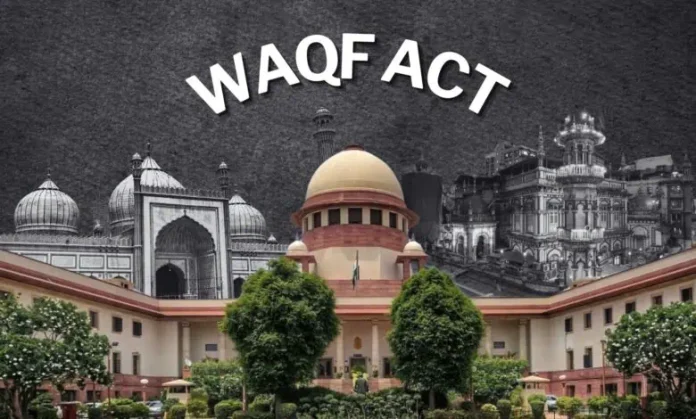New Delhi: The Supreme Court on Wednesday continued hearing a batch of petitions challenging the constitutional validity of the controversial Waqf Amendment Act. The bench, headed by Chief Justice D.Y. Chandrachud and Justice A.G. Masih, had earlier heard arguments from the petitioners’ counsels on May 20, raising several objections to the amendments. On May 21, Solicitor General Tushar Mehta appeared on behalf of the Central Government to defend the new law, reported the Dawat News.
Mehta began his argument by questioning the locus standi of the petitioners, stating that none of them were directly affected parties. He argued that the petitions were not representative of the entire Muslim community and stressed that the Parliament has the legislative authority to enact such laws. “Just because a few individuals object does not mean they represent the entire community,” he said.
Significantly, Mehta argued that although waqf is an Islamic concept, it does not constitute an essential religious practice in Islam. He stated that the Waqf Boards primarily carry out secular functions such as managing records and accounts, unlike Hindu Endowment Boards that deal directly with religious rituals. Therefore, he maintained, the inclusion of non-Muslims on Waqf Boards is legally permissible and does not violate religious rights.
“Charity exists in all religions, but that does not make it a fundamental religious practice,” Mehta told the court. He also justified the amendments by pointing to a 116% increase in disputed waqf land claims following changes made in 2013, suggesting that the new law aims to curb misuse and fraudulent claims over public and private properties.
He claimed the law was passed after a thorough parliamentary process, with a Joint Parliamentary Committee conducting 36 meetings and reviewing over 9.6 million suggestions. Mehta also dismissed the concept of “waqf by user” — where long-term religious usage is claimed as waqf — as having no basis in fundamental rights.
The hearing on the matter is ongoing and is expected to have far-reaching implications on the management and governance of waqf properties across India.




